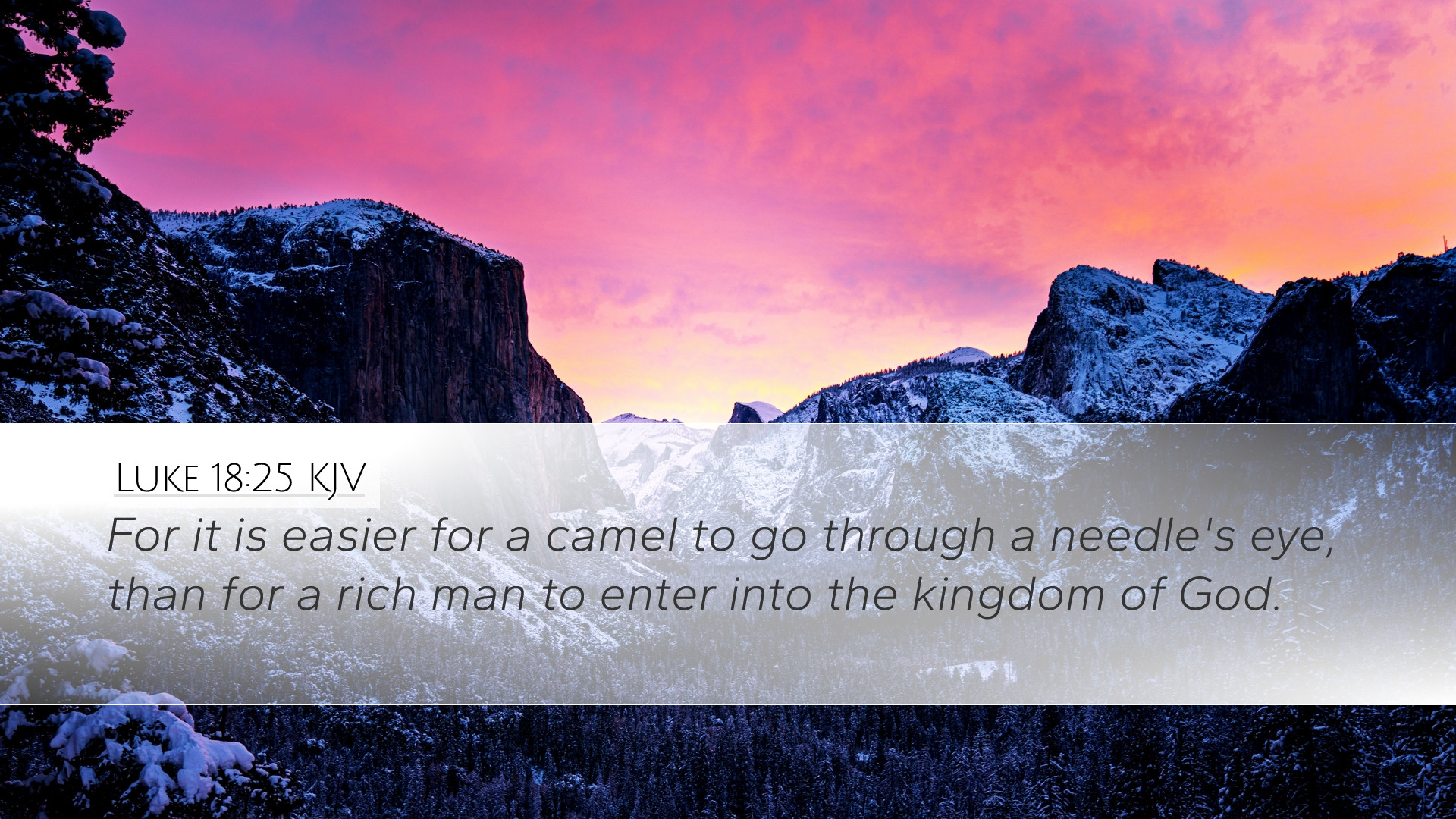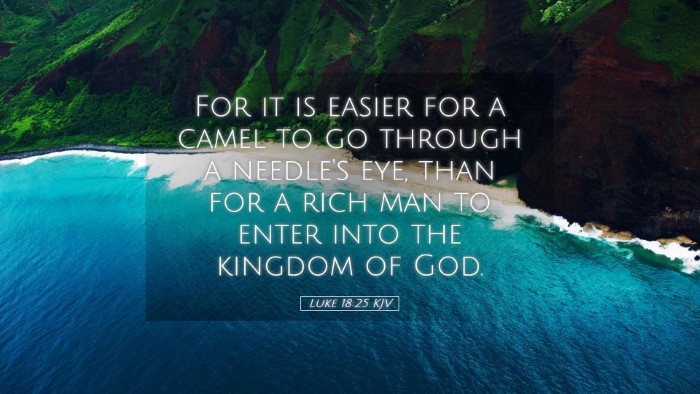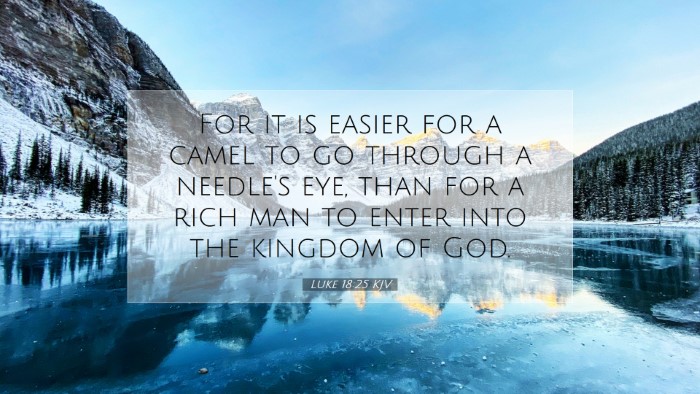Commentary on Luke 18:25
Luke 18:25 states, "For it is easier for a camel to go through the eye of a needle than for a rich man to enter the kingdom of God." This verse has garnered considerable attention and interpretation throughout history, particularly concerning wealth and spiritual salvation. Below is a synthesis of insights from prominent public domain commentaries.
Introduction to the Verse
This verse appears within the context of Jesus' teaching about the difficulty faced by the wealthy in attaining the kingdom of God. It follows the encounter Jesus had with the rich young ruler, where the ruler expressed his adherence to the commandments but struggled to separate from his wealth.
Matthew Henry's Commentary
Matthew Henry emphasizes that this statement illustrates the overwhelming challenge wealth poses to spiritual life. He argues that riches can easily lead to complacency and a false sense of security in one's moral standing. Wealth often distracts from dependence on God, which is essential for salvation.
Henry discusses the metaphorical imagery of a camel and an eye of a needle, interpreting this as not merely hyperbole but a profound statement about the spiritual state of the wealthy. The large camel represents the burden of riches, while the small eye symbolizes the narrow path to salvation that requires humility and self-denial.
Albert Barnes' Insights
Albert Barnes provides an in-depth analysis of the metaphor. He notes that several interpretations exist regarding the "eye of a needle," including some ancient references suggesting a narrow gate in Jerusalem. However, he supports the more traditional understanding that emphasizes the impossibility of the event described – a camel is simply too large to enter a small opening.
Barnes also reflects on the implications of this verse for wealth. He states that wealth can seduce individuals into a state of spiritual blindness, where they might believe their material possessions merit them favor before God. This commentary serves as a sobering reminder to prioritize the eternal over the temporal.
Adam Clarke's Perspective
Adam Clarke adds a layer of linguistic and cultural context to his interpretation of this verse. He highlights the original Greek terms and the hyperbolic nature of Jesus' words. Clarke points out that this teaching was particularly countercultural, challenging the prevailing notion that wealth was synonymous with divine blessing and favor.
Clarke underscores the idea that material riches, while not inherently evil, often create barriers to complete reliance on God. He urges readers to consider the balance between enjoying God’s blessings and recognizing the potential for those blessings to become an obstacle to spiritual growth.
Theological Implications
- The Role of Wealth: This verse compels a theological reflection on the nature of wealth. It propounds that earthly treasures may hinder one’s relationship with God, leading to a misaligned priority where spiritual pursuits are undervalued.
- Humility and Dependence: The mention of a camel and an eye of a needle serves to highlight the necessity of humility. It is through the acknowledgment of one’s limitations and the recognition of God’s grace that one can find the path to salvation.
- Salvation is Divine: The impossibility articulated in this verse aligns with the broader biblical narrative that salvation is an act of divine grace, not human endeavor. It underscores that entering the kingdom of heaven cannot be earned but is a gift from God.
Application for Believers
As pastors, students, theologians, and Bible scholars, the reflection upon Luke 18:25 encourages a multifaceted application in daily living:
- Self-Examination: Believers are called to examine their relationship with wealth and resources, ensuring that it promotes rather than hinders spiritual growth.
- Community Focus: The church is encouraged to foster community among believers, reducing divisions created by socioeconomic status, and cultivating an inclusive environment where all can pursue Christ together.
- Teachings on Generosity: This commentary should inspire teachings on the importance of generosity and stewardship. The faithful use of resources can be a powerful tool for the Kingdom, transforming lives and communities.
Conclusion
In conclusion, Luke 18:25 presents a stark challenge regarding the relationship between wealth and spiritual vitality. The syntheses from Matthew Henry, Albert Barnes, and Adam Clarke collectively underscore the essential truth that reliance on worldly possessions can obstruct one’s entry into the kingdom of God. This does not necessarily indict wealth itself but rather calls for an introspective assessment of where one's priorities lie.
Ultimately, the verse invites a deeper appreciation for the grace of God, underscoring the necessity of divine intervention for salvation, which transcends human efforts or social standings.


